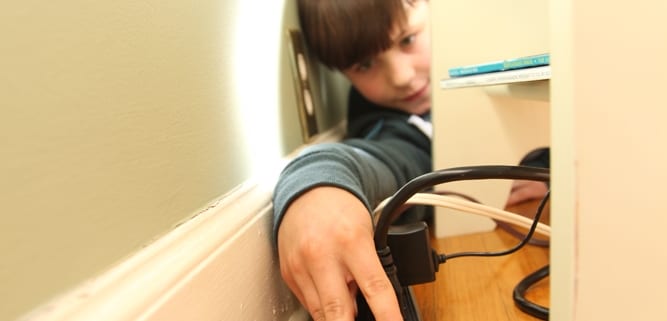Avoiding Outlet Overload
Each year we become the owners of more and more items that require electricity. Whether it’s large TVs, computers or chargers for our phones, we must plug these items in to use or charge them. Frequently our needs outnumber the available electrical outlets, especially in older homes that have fewer outlets.
Tennessee’s electric cooperatives remind homeowners to resist the temptation to use multiple extension cords and power strips because overloading outlets can lead to a fire.
According to the Consumer Product Safety Commission, about 5,300 residential fires each year are caused by overloaded outlets or circuits. Many times multiple outlets – or even entire rooms – can be on a single circuit. Even if you are using multiple outlets, you can still experience issues if all of the outlets are fed by the same circuit. Circuits should be marked on the breakers in your breaker box. If your breakers are not labeled, you can turn your them off one by one to identify which outlets, appliances or household systems are affected. If this doesn’t work, you should contact an electrician for assistance.
How do you determine how much is too much? Grab your calculator.
First, calculate the total wattage off all the items that are powered by a single circuit – most electronics will be labeled. Divide this combined wattage by the voltage of the circuit (120 volts is typical for most homes). The result will be the amount of amps you’re using on the circuit.
Go back to your breaker box to see what size breaker is used for the circuit – most will be 15 or 20 amps. You should only use about 80 percent of the available amperage on a circuit. If you are above 80 percent, consider moving some of your devices to other circuits.
Of those 5,300 home fires caused by overloaded outlets and circuits each year, about 2,000 occur during the holidays. You may be surprised how much energy Christmas trees, lights and other electrical holiday decor can consume. Be sure to be aware of the extra wattage you’re adding and take the necessary precautions.





Leave a Reply
Want to join the discussion?Feel free to contribute!